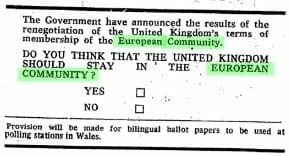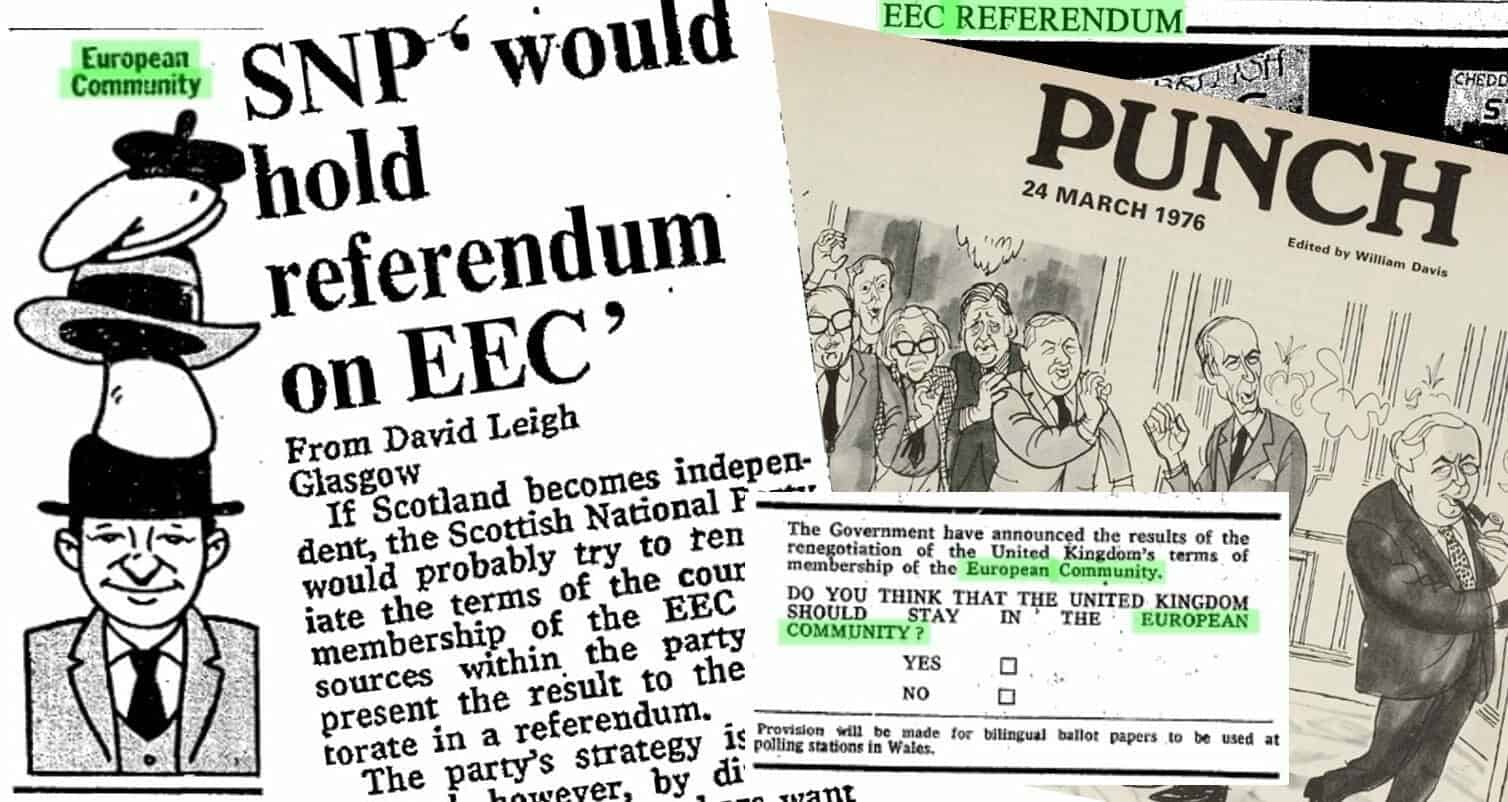│ By James Garbett, Gale Ambassador at the University of Exeter │
As the situation regarding Britain’s withdrawal from the European Union continues to unfold, it’s intriguing to glance back several decades, to when Britain had just entered the European Economic Community in 1973 under the Conservative government. The question poised to the public in 1975 – whether or not to withdraw – was the first national referendum ever held throughout the entire United Kingdom. It’s fascinating to note the parallels between these two distinctive times in British history using Gale Primary Sources such as The Times and The Daily Mail archives.

One of the most poignant elements to be found when exploring the archives is that a referendum on the EEC was hugely criticised at first; according to a Bow Group pamphlet discussed in The Times, the debate was concentrating too much on whether Britain should remain in the EEC, rather than on the long-term effects a referendum would have on the constitution. The pamphlet concludes that the very principal of the referendum would undermine Parliament’s authority, perhaps rather aptly stating that “the less responsibility we expect MPs to bear, the more we may expect them to be irresponsible, childish, factious”.

Whilst it was over four decades ago, one can easily appreciate the atmosphere of uncertainty that surrounded the referendum in 1975. A few months prior to the vote, the Daily Mail published an article discussing the wording of the question itself, remarking on the more etymological aspects of the question, in particular the difference between “come out” and “stay in”. The wording of the question on the ballets were found by the National Opinion Poll to have an impact of roughly two million votes, with the implication being that the public were more likely to keep things the same if the question was worded as “stay in” as opposed to the 2016 ballots which just questioned to remain a member of the EU or to leave.
David Spanier, European Editor at The Times, also expressed concern about the suitability of a referendum. “What would a government do,” he asked “if there was a 45 per cent poll, with 23 per cent voting against and 22 per cent voting for the government’s recommendation that we stay in…Would we really be taken out of the Community, because under a tenth of the voters strongly felt this should happen and a little over a tenth felt mildly the same…In trying, with a single question, to encapsulate the voters’ complex views on this complicated issue, the Government will risk being unable to avoid acting in a way they may think very bad for Britain.”

One can easily remember the political pandemonium that occurred in the aftermath of the 2016 referendum, with various parliamentary officials stepping down from their positions or leaving. Interestingly, an article within the Punch Historical Archive states that Harold Wilson, the Labour Prime Minister in 1975, merely engineered a referendum because it was the only way to keep his party from falling apart (and thus avoid chaos), with them only having 301 seats and the referendum being an attempt to appease the 297 seats held by the Conservative opposition at that time. Whether the 2016 referendum was an attempt to strengthen party cohesion will be left to the opinion of the reader…

From Punch Historical Archive, 1841-1992 http://tinyurl.galegroup.com/tinyurl/8qLJe8 Accessed 25 Jan. 2019
The matter of Scotland and its independence, and subsequently its connection to the European Community, also generated significant contention in the ‘70s; “If Scotland becomes independent, the Scottish National Party would probably try to renegotiate the terms of the country’s membership of the EEC and the sources within the party say present the result to the electorate in a referendum,” wrote David Leigh. Ergo, the complex relationship between Scotland, the UK and Europe was certainly a reality in 1975.

This blog post explores only a very small portion of the wealth of material that the Gale archives have to offer. Yet after having sifted through some of these fascinating articles, one can see that similar concerns were apparent, yet there was also an alternative atmosphere in Britain at the time of the 1975 referendum. Looking back offers us no real clues about where the current withdrawal from the European Union will leave us, due to the alternative result, but it does reveal all too clearly the slightly unsettling fact that history tends to be cyclical, and often repeats itself.

